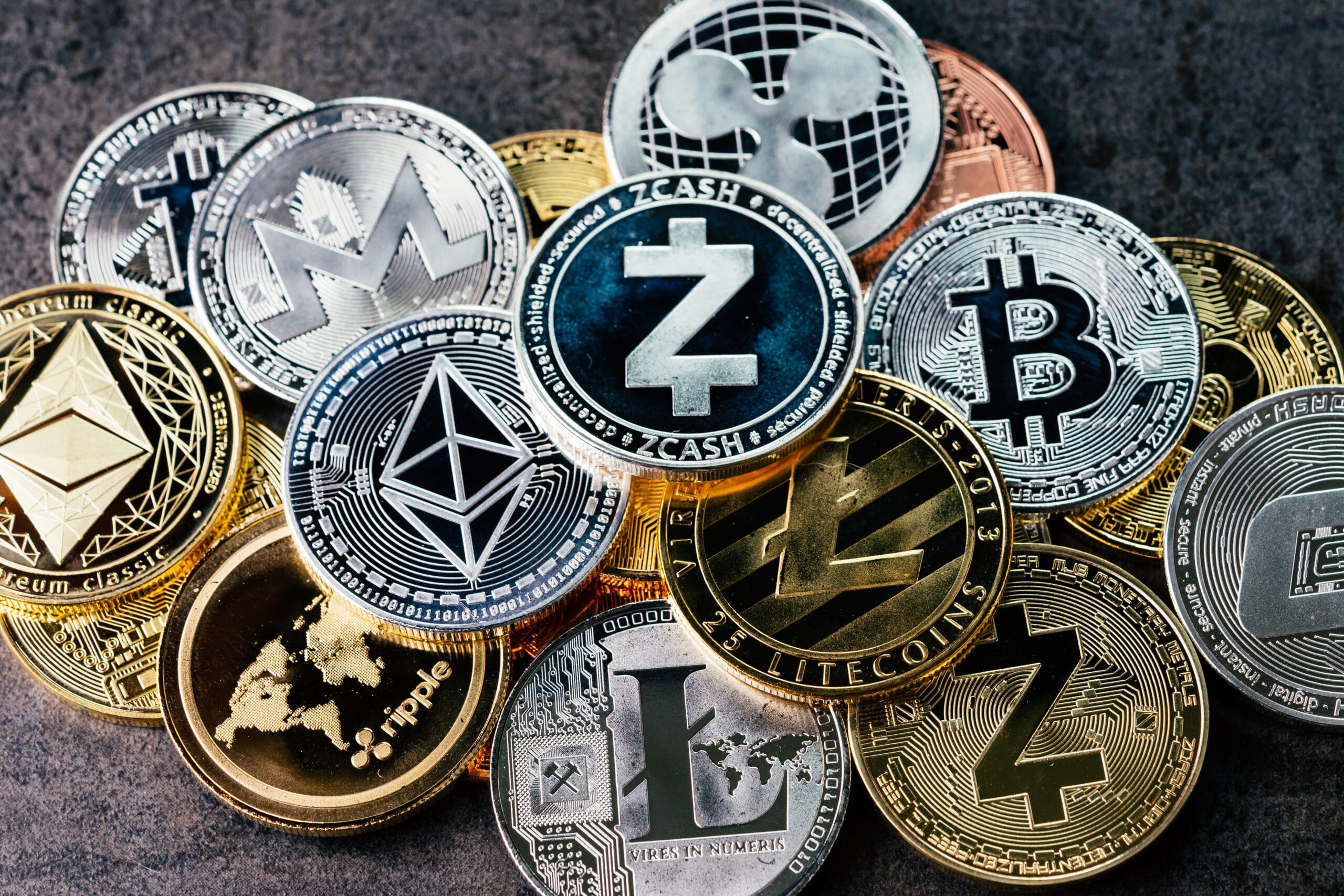Share

If you’re in the cryptocurrency space, you’ve probably heard the horror stories about what can happen with cryptocurrency exchanges. Ever since Mt. Gox that’s been a well-known risk. But crypto exchanges are still popular as a entry point into trading cryptocurrency, and they portray themselves as a safer, easier alternative to all the risks that can happen when you have your coins on your own wallet.
The problem is that many of these exchanges think they’re above the law. One of the big benefits of cryptocurrencies is the lack of regulation. But that’s also one of the big downsides: the law isn’t up to date in terms of protecting consumers from companies that don’t have their best interests at heart. And when something goes wrong on one of the exchanges, the consumer protection laws that normally apply to something like a bank transfer, for example, aren’t there to help you.
You may think there isn’t any hope. The exchanges want you to think that. But it isn’t true. If something goes wrong with your account on Kraken—stolen coins, errors, flash crashes, a hacked account—you may still have legal remedies you can pursue. That’s actually one of the big potential benefits to using an exchange: there’s someone who has a legal responsibility to keep your account protected and who can potentially be held responsible for things that go wrong.
But how you get legal relief from Kraken is very different from what you’d do in the traditional finance world.
If you’d like to talk about hiring us to pursue a legal claim against Kraken, or any other cryptocurrency exchange, Click Here to Submit Your Claim.
You will probably have to go to arbitration against Kraken.
Kraken is the brand name for a cryptocurrency exchange run by a company called Payward, Inc., which is incorporated in Delaware but based in San Francisco, California. Most exchanges have arbitration clauses—not all of them, but the big ones generally do. Kraken is no exception. Their current version of the terms of service (as of May 30, 2022) includes an arbitration clause.
Kraken also chose California law to govern its terms of service. That means you’re going to want a lawyer licensed in California, because the state has restrictions on out-of-state lawyers participating in arbitrations here. California also has a lot of good case law for consumers, and you’ll want someone familiar with how it all works.
What if you’re from out of state? That’s generally not an issue. The arbitration would be filed here in California, so we’d generally be able to represent you because it would take place here.
Another reason you will want a lawyer in California is because of what happens if you win. You might think, hey, I just won my arbitration award, I’m done. But that’s not always true. Most of the time companies will pay up once you’ve won the award, because arbitrations are very, very hard to appeal from. It’s possible—it just almost never works because the standards are much higher than appealing a regular lawsuit. But if Kraken fights, you’d need to do something called confirming the arbitration award. Basically, you go to a federal court in the same place where the arbitration took place and ask that court to turn the arbitration award into a legal judgment. After that, you can collect on your judgment in court just like you would in a regular lawsuit.
Your legal claims against Kraken may be based on more traditional legal theories.
Ironically, the most modern kind of currency is often best protected by some of the most ancient legal claims. Our firm is creative about coming up with legal options for people, and with our history in helping consumers in California with all kinds of different laws, we know most of the options. Below are some examples, but it all depends on the facts of your case and what specifically happened to you.
One of the strongest for a cryptocurrency case is something called “conversion.” Conversion is a tort claim—a “tort” is what lawyers call a type of civil action against someone based on a particular legal theory. It means that someone exercised control over personal property belonging to you and interfered with your right to possess it. A number of courts have held that cryptocurrency is money or property and a conversion claim can apply if someone interferes with your rights to cryptocurrency you lawfully own. See Shi v. Le, No. 21 CV 1361 (ARR) (CLP), 2022 U.S. Dist. LEXIS 37146 (E.D.N.Y. Mar. 2, 2022); Ox Labs v. Bitpay, Inc., No. CV 18-5934-MWF (KSx), 2020 U.S. Dist. LEXIS 38795 (C.D. Cal. Jan. 24, 2020). A related claim is trespass to chattel, which is a common law claim for less serious interference with personal property. At least one court has allowed a trespass to chattel claim to go forward involving Bitcoin. Schober v. Thompson, Civil Action No. 21-cv-01382-NYW, 2022 U.S. Dist. LEXIS 7894 (D. Colo. Jan. 14, 2022).
One downside to conversion, though, is that you can’t get attorney’s fees as damages in California under that claim.
Then there’s traditional negligence or gross negligence—again, once of the most ancient theories around. For example, an exchange could be negligent in protecting your account from SIM swapping or other forms of hacking.
Another option is California’s Unfair Competition Law. We use this law often in more traditional consumer cases because it’s so broad: it prohibits any kind of deceptive, unfair, or unlawful conduct. The one big downside is the damages are limited to something called restitution, i.e. money that went from you to someone else improperly. In some kinds of cases involving cryptocurrency that’s actually the perfect form of damages, but it depends on the facts.
Finally, there’s the CLRA—the Consumer Legal Remedies Act. This one applies more narrowly, but it’s possible it could be used depending on the facts. The one big benefit to this statute is you can get your attorney’s fees paid back to you as damages. But it only helps consumers (not businesses), and the most common situation it applies to is where there was some kind of false advertising.
There are plenty of others, but these are just some that we always look at as potential legal claims. It all really depends on the facts—and an arbitrator will try to draw analogies using laws that weren’t written for this technology. We try to help them understand why your claims against an exchange like Kraken should fit within one of the traditional tort law theories.
How much does it cost to hire a lawyer to sue Kraken?
There’s no way to know without more details about your case—the more complex the issues, the more it could cost. Also, the more you’re asking for, the more attorneys Kraken is going to throw at you. One upside to arbitration is that it costs much less than court does. It’s less formal, and it also goes a lot quicker—relatively, at least. Court cases can take years, while arbitrations are usually over with in 12-18 months.
For cases involving Kraken, we can’t win our attorney’s fees for many scenarios that potential clients have. In a traditional bank account case, for example, if someone fraudulently removes money from your account, you can use “fee shifting” statutes designed to protect consumers from banks. Those haven’t been updated for the modern age and new forms of digital currency. So if the amount is small—a few thousand dollars—it’s probably not going to make sense for you to have an attorney in your arbitration. That doesn’t mean you can’t arbitrate. JAMS, the arbitration group that Kraken’s terms and conditions require you to use, only has a $250 filing fee for consumer arbitrations. So if the amount is really small, you can try to do it yourself. Certainly it won’t make sense to hire an attorney if there isn’t much money at stake.
Cases start making economic sense to have an attorney roughly when they cross the six-figure mark in terms of how much you’ve lost. At that point, we can handle the arbitration at a cost that means that you’re making a good bet. You can never be sure if you’re going to win or not. There’s an old lawyer saying: if you’re 100% sure you’re going to win your case, you’ve got a 90% shot. But even at 50/50, it starts to make sense to hire an attorney.
For arbitrations like this, we generally propose charging fees in stages and we’re willing to work on a flat fee arrangement. This means that if you settle before you get to the end, you aren’t paying the full amount.
For example, a first stage would be doing the legal research and sending a demand letter. Kraken’s terms and conditions require you to give them notice in writing to Payward within 30 days of any dispute arising, for example, and they require you to “attempt informal resolution prior to any demand for arbitration….”
We don’t think that 30 day requirement is valid as a way to stop a claim, by the way, but you never know what an arbitrator will do, so it’s best to write to their legal department within that time if you can. But either way, in the first stage we’d want to try to work things out with them before filing the arbitration, even if it’s just to satisfy the contract clause.
A second stage would be drafting and filing the arbitration demand. An arbitration demand is a document you send to JAMS that outlines your legal claims, the facts about what happened, and what you’re asking for.
A third stage would be the preliminary work – the discovery, the preparation for the hearing, selecting the arbitrator, and working up the presentation. There might be depositions or requests for documents.
And a fourth stage would be the arbitration itself. This is a hearing, usually done remotely on Zoom, before the arbitrator. You would testify, and they might have witnesses as well.
Finally, if Kraken didn’t give you the money after the award, a last stage would be confirming it in court. In this stage you turn your arbitration award from JAMS into a legal judgment. We can do the confirmation (which creates an enforceable judgment). After that, we can help you find a collections law firm to levy their assets.
This is just an example. If the amount is huge—millions of dollars—you may well want an hourly rate, because it lets us respond in force to the legions of lawyers and experts they’ll send at you to protect their money. When claims are in the seven figures, we see financial institutions start hiring expert witnesses, demanding multi-day arbitrations, and trying to do anything and everything to slow things down. With that amount of money, you may want your own expert witness.
What are my chances of winning?
People often ask us this, but there’s never a way to know for sure. With crypto, there are two big issues in arbitration. First, the law is new and often unsettled. So you could have two different arbitrators decide to do completely different things. Second, most of the arbitrators you get will have no idea what you’re even talking about. They’ll be generally older, and generally lawyers. Kraken chose JAMS, which has a good pool of arbitrators and many former judges. But that means sometimes when you’re talking about a complex technology, you sound like the parents on Charlie Brown to them: just incomprehensible gibberish. Part of pursuing cases involving complex technology is working to make it understandable to the average person or the average arbitrator. But you can never guarantee it will actually happen, even if your case is strong.
The exchanges will also assert defenses—they’ll say you waived your rights by contract, or come up with any number of legal technicalities why they don’t have to pay.
It can be smart to look at the case like an investment: is the amount you’re investing worth the potential returns? Anyone in the crypto space knows how evaluate that.
Our lawyers have significant experience in both complex technological cases and in financial industry lawsuits on behalf of consumers. If you’d like to hire us to arbitrate against Kraken, or any other cryptocurrency exchange, Click Here to Submit Your Claim.


